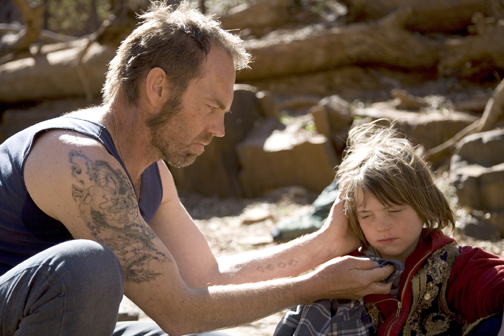
Hugo Weaving as the father to Chook (Tom Russell) in LAST RIDE (Music Box Films)
Last Ride goes on the dark side Down Under with a father, his son, and the remarkable landscape of the Australian outback.
Kev (Hugo Weaving) and his 10-year-old son, Chook (Tom Russell), are on the lam. After cutting his long hair and beard in a diner restroom, Kev drags Chook onto a long-distance bus ride, where the boy dreams of what they left behind—living in an automobile junkyard, hunting feral animals, and the bashed body of his father’s friend, Max (John Brumpton), a victim of Kev’s unpredictably explosive anger.
Whether by bus, hitched truck rides, stolen cars, and on foot, each distinctive locale they flee to further and further into the interior reveals more about their pasts. Their first stop in a small town is a might-have-been of a normal life. A scene where Kev raids a cemetery for flowers at dawn sweetens his visit to ex-girlfriend Maryanne (Anita Hegh), who Kev charms like he did when she was his prison math teacher. (Chook is good at numbers, too, especially phone numbers, which will come in handy.) She affectionately bathes Chook and warmly reminds him he’s loved, even if his mother took off, much as she warily doesn’t want the volatile Kev around too long either.
The duo’s flight from the law is also a return to Kev’s troubled roots in the bush, physically and emotionally, as he revisits, and replays on Chook, where and how his father treated him—the film places his rage within a distinct geographic and family background of survival. Hitchhiking into more desolate terrain, they hide out from the police in what would seem to be an incongruous Afghan Heritage Museum. The dusty old photographs there inspire Kev to regale Chook with family stories of ancestral camel drivers that incites the boy’s imagination and a fascination for a traditional outfit on display. But this haven is also temporary. Kev repeats a pattern of leaving Chook virtually abandoned overnight for a bar outing and a brawl. TV news on the homicide in the junk yard sets him off on a violent carjacking and far into the outback where his father imparted living-off-the-land skills learned from an aborigine ancestor. (“We’re mongrels,” he explains to Chook about their mixed background.)
Kev teaches the reluctant Chook about bush life around the campfire, how to fish, and forces him to learn to swim, but his rough affection is also about initiating him into a rigid ideal of masculinity. He brusquely refers to the abuse he suffered in prison (“I was young and easy prey”), and brutally strikes out when the bored Chook puts on make-up he finds in the stolen car, hinting at why Max’s attentions to Chook so enraged him. (Chook’s memories are more explicit in Denise Young’s novel.) Ironically (compared to recent films about aborigines whose urban disappointments push them back home), the dense woods Kev roamed with his father are now a national park run by aborigines protecting their own land. While the rangers are sympathetic to Kev’s claims of teaching his son the bushie experience, they, too, become suspicious of Kev’s wild ways.
The duo hightails it further into the outback through an amazing setting that looks like a Star Wars planet. Driving into an enormous shallow salt lake, Kev repeats another cruel lesson from his irresponsible father, angrily abandoning Chook, forcing him to walk his own way out of the desert, where he learns self-reliance in a way his father didn’t expect but can finally respect.
While their compelling story is from Chook’s perspective, as in the book, Weaving strips down and fills out Kev as more than a gruff ex-con with an out-of-control temper. Combined with how cinematographer Greig Fraser (a frequent collaborator with Jane Campion) places the pair within the endless horizons where there is no final escape, Weaving’s paternal to scary on a dime performance makes Last Ride much more than a depressing story about another abusive father.

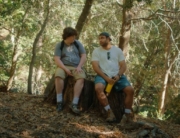
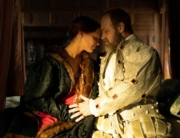
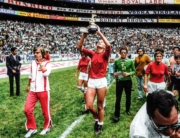
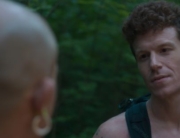
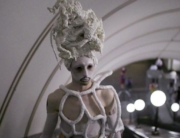
Leave A Comment